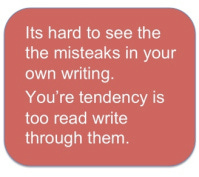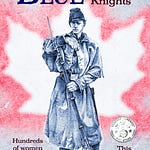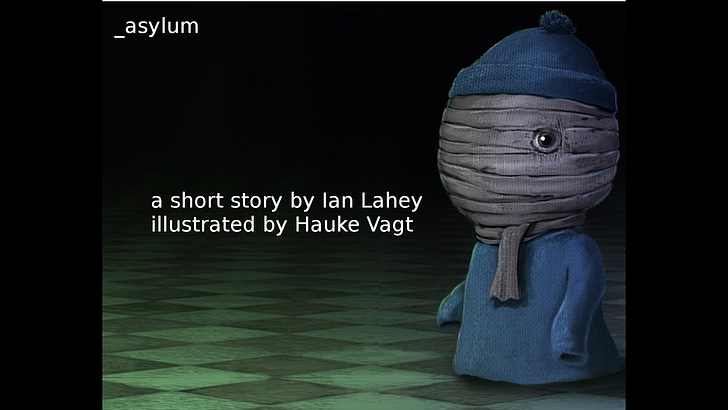Thank you, Lenora, for this suspenseful example of a short story that fits the classic format. The twist at the end turned the dark science fiction tale into a contemporary piece of humor.
“The Assassin” by Lenora Rain-Lee Good was originally published in flashfictionmagazine.com November 27, 2016. Our thanks also to Farris Hallaj for his composition, “Inside the Darkness.” You can find Farris on YouTube, Twitter, and Facebook.
Another Arrow in Your Editing Quiver
Editing your own work is one of the most demanding tasks required as you ready your manuscript to meet the world. Why? Because the brain sees what it thinks is there.
Count the number of errors in the excerpt above. Most people see the first four immediately, the fifth a little later, and the sixth takes a lot longer. Now read it aloud slowly, using a piece of paper to block out everything below the line you’re reading. The mistakes pop out almost immediately.
After you run the quick-fix spelling and grammar check, bearing in mind that neither of them are infallible, it is time to put on your reader hat. Just taking a quick read from beginning to end will be useful, but you know your characters and the story so well that you will miss most of the errors. You will read what you think you wrote.
Try something new. Take a break of at least a couple of days before beginning, and record as you read. If you don’t have any recording equipment, don’t worry—your phone will be just fine. As you read and listen to the playback, your ear will pick up all sorts of things your eyes miss. Little things like switching tenses or those pesky little words that get missed when you rework a sentence or paragraph. Voice memos work. Try it. You’ll be amazed the number of things you catch.
And if the editing boost isn’t enough, there’s a bonus! You have a recording of your work! Short stories like “The Assassin” can be texted or emailed to yourself or others. (The recording in this newsletter was made on an iphone.) If you’re working on a novel, record one chapter at a time. If you trip over their own tongue and have to edit your recording, there are free programs like Audacity and Garage Band with plenty of YouTube tutorials available.
Your recording won’t pass the ACX standards for audio books, but will work well for serializing on your own blog or website. Put a teaser up on social media or your website so people can listen to an excerpt of your book. Want a give-away for newsletter sign ups? Give away a recorded short story people can listen to while driving to work or washing dishes.
You’re the author. Who else will give the exact expression to the words that you had in your head when you wrote the dialogue? Who else will pronounce the unusual names the way you intended? It gives a personal touch your followers will appreciate. I’m recording my novels for paid subscribers. Why not take the journey with us and subscribe now?














The Assassin